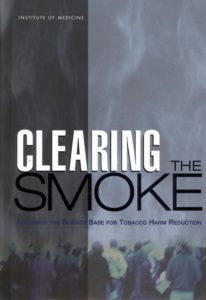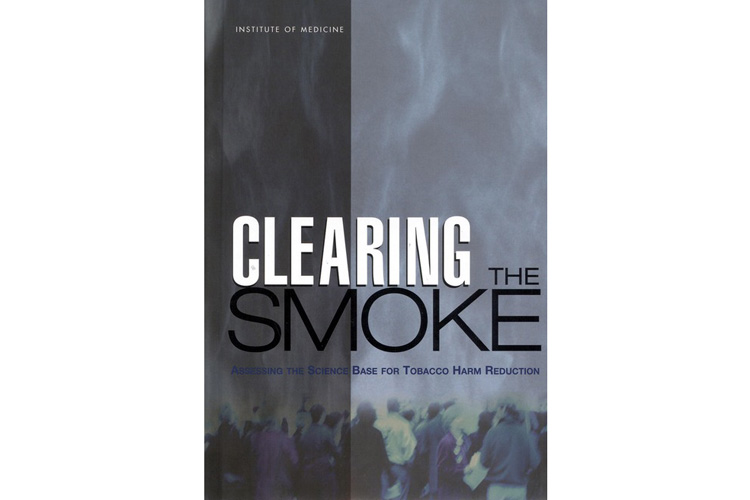 Forty-two public health leaders have signed onto a letter urging the U.S. Food and Drug Administration Center for Tobacco Products (CTP) to review and update the 20-year old Clearing the Smoke report so that it can address the evolved tobacco and nicotine marketplace.
Forty-two public health leaders have signed onto a letter urging the U.S. Food and Drug Administration Center for Tobacco Products (CTP) to review and update the 20-year old Clearing the Smoke report so that it can address the evolved tobacco and nicotine marketplace.
Two decades ago, the Institute of Medicine (now the National Academy of Medicine) issued its landmark report Clearing the Smoke—Assessing the Science Base for Tobacco Harm Reduction. The report had been compiled at the request of the FDA as it considered—even before Congress gave it the authority to do so—how best to regulate the growing tobacco and nicotine marketplace.
The signatories of the letter point out that much has changed in the tobacco and nicotine marketplace since the report was first published. Science, technology and innovation have dramatically advanced over the past two decades. Consumers can now choose from a range of nicotine delivery products spanning the entire continuum of risk—from deadly combustible cigarettes on one hand to less-harmful noncombustible products such as snus, e-cigarettes and tobacco heating products.
However, a slow product approval process means these products are not being made available to the public at a pace that would help significantly reduce the harms of cigarette smoking. What’s more, a lack of education efforts means consumers remain uninformed about the less-risky product choices available to them.
The signatories maintain that an update of the Clearing the Smoke report will help put all stakeholders on a track that will collectively advance public health objectives. They believe that the National Academy of Medicine, which produced the original report, is the most appropriate body to undertake such a review on behalf of the CTP.
The letter’s signatories include Scott Ballin, former vice president and legislative counsel of the American Heart Association; K. Michael Cummings, professor in the department of psychiatry and behavioral sciences at the Medical University of South Carolina; David Abrahams, professor in the department of social and behavioral science, at the College of Global Health at New York University; Aaron Biebert, former president and CEO of Clear Medical Solutions; Allan C. Erickson, former president for public education and tobacco control at the American Cancer Society; Ray Niaura, professor of public health global studies at New York University; and John R. Seffrin.

